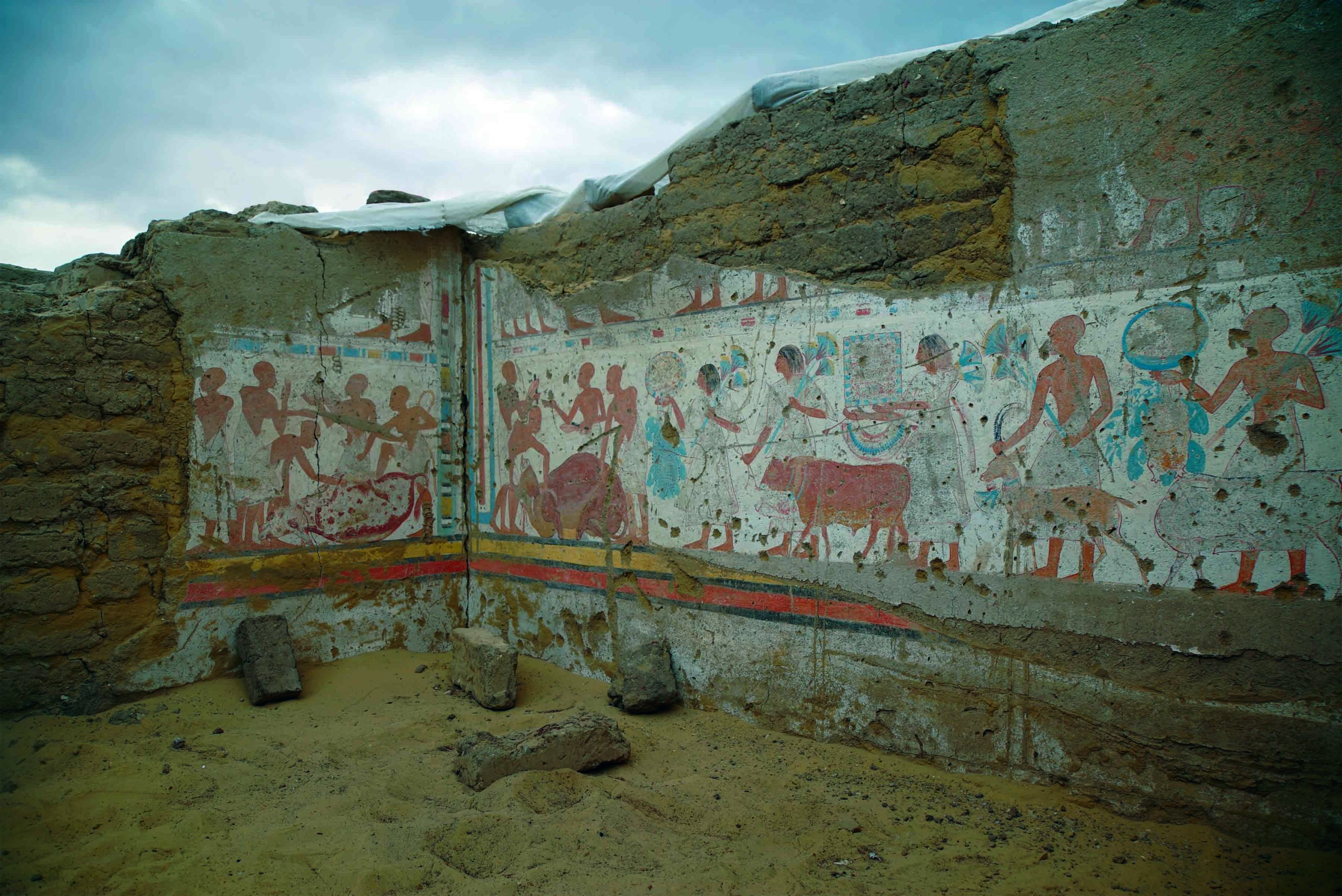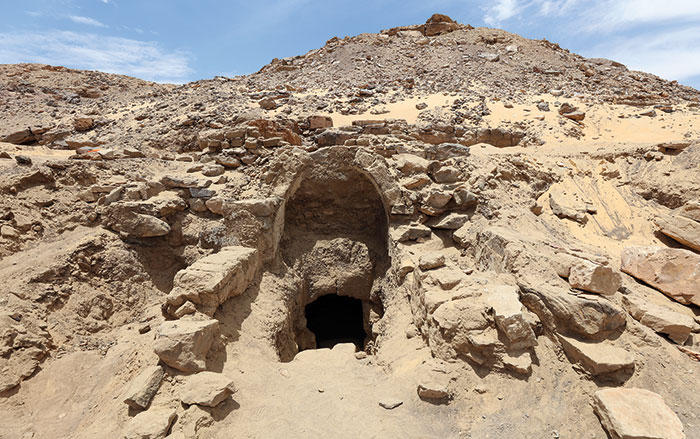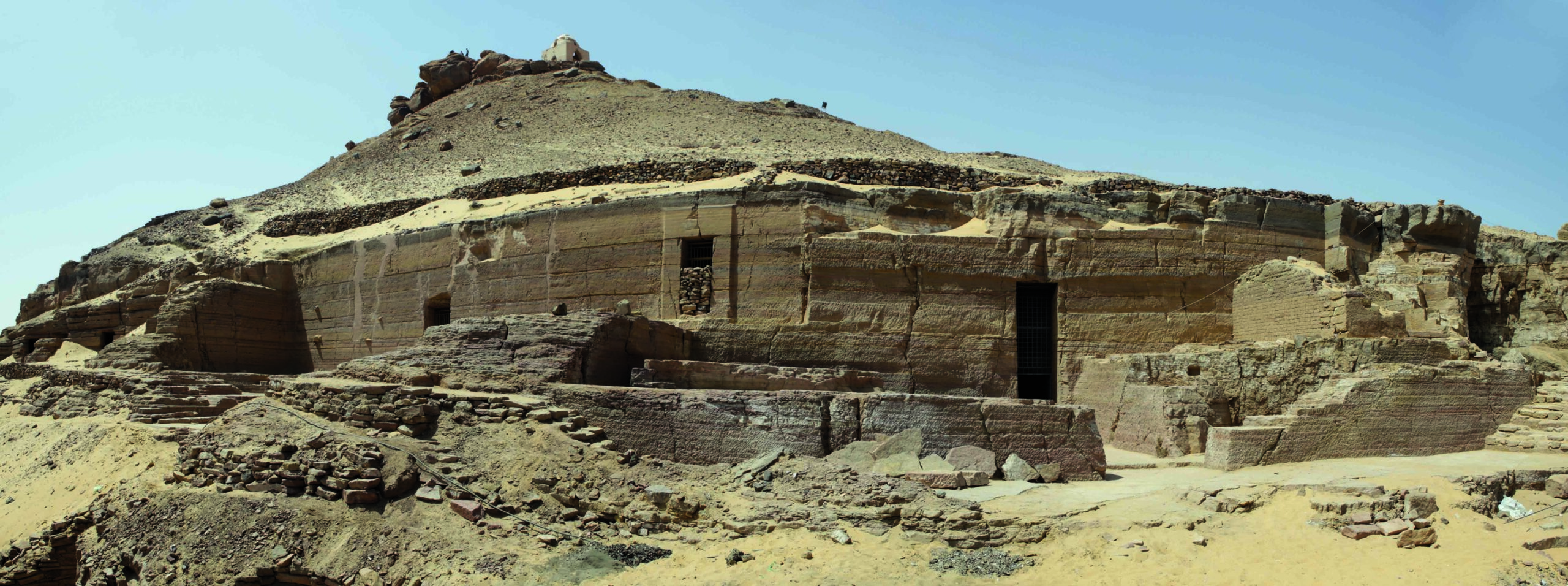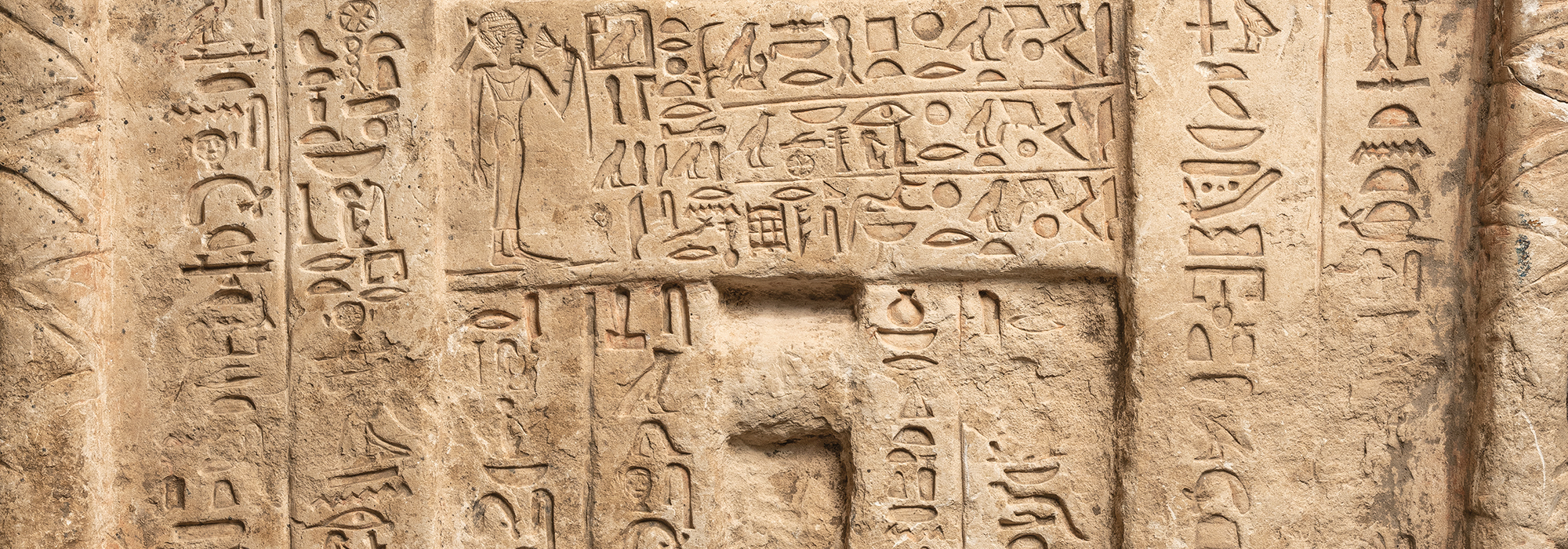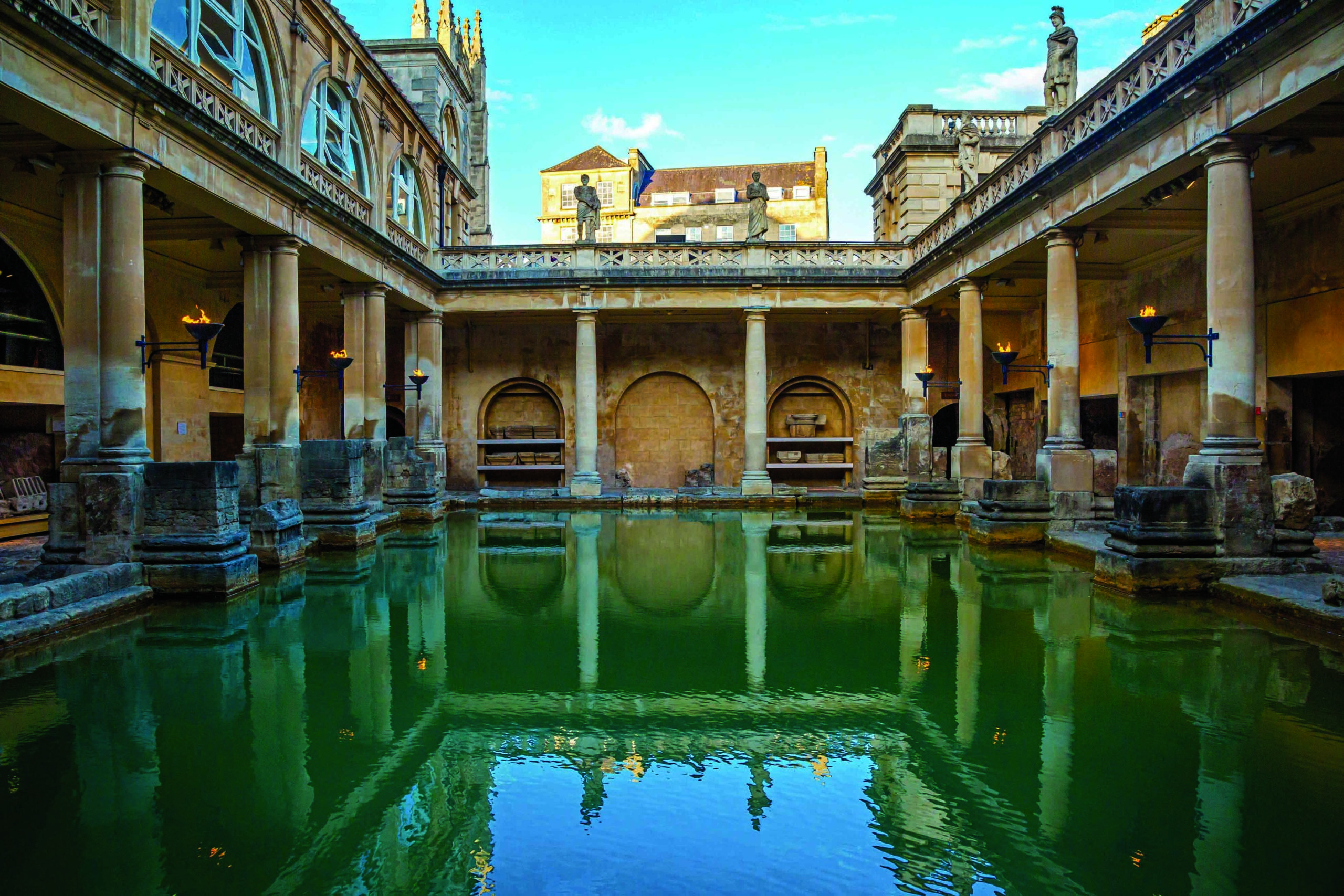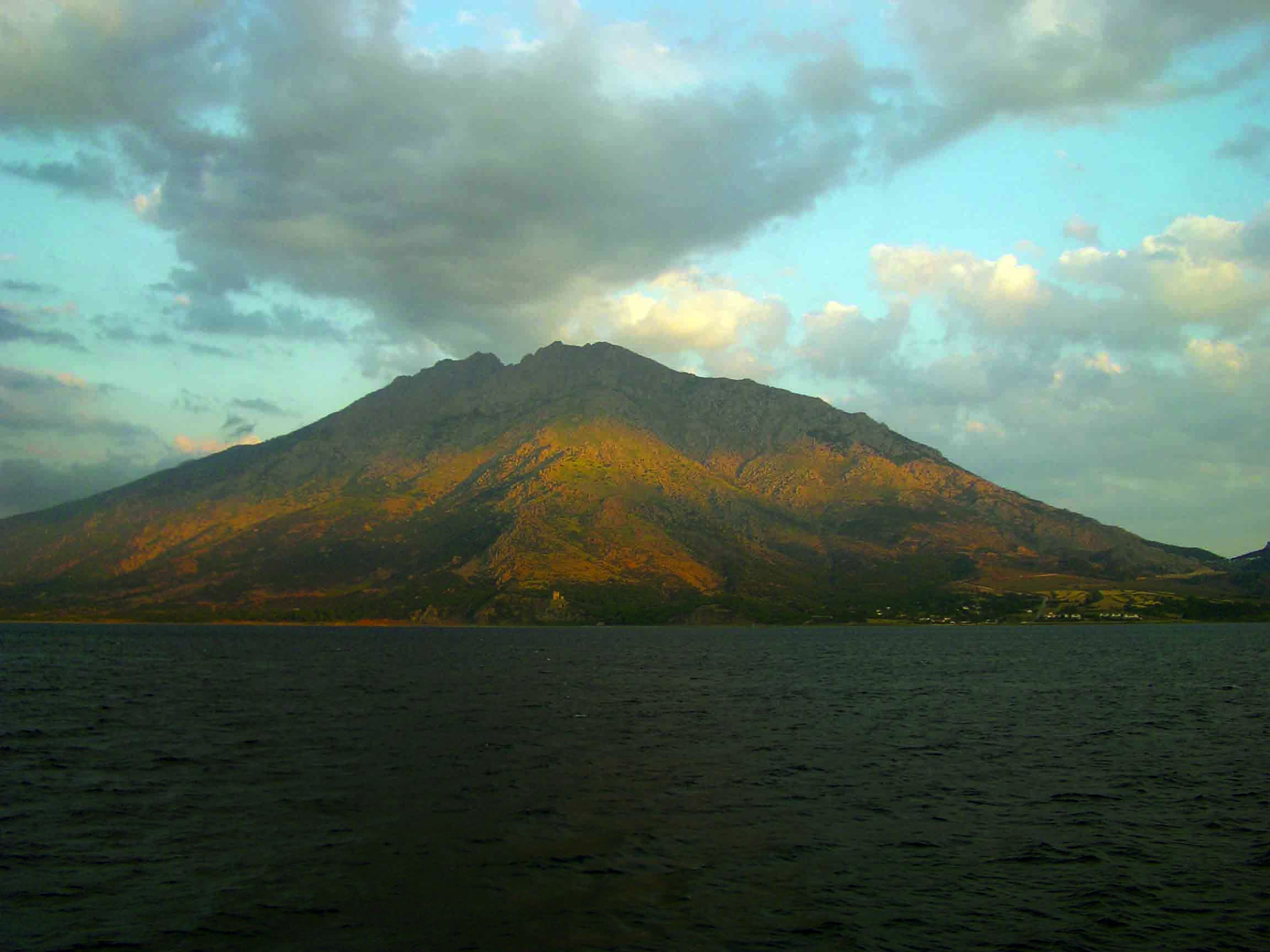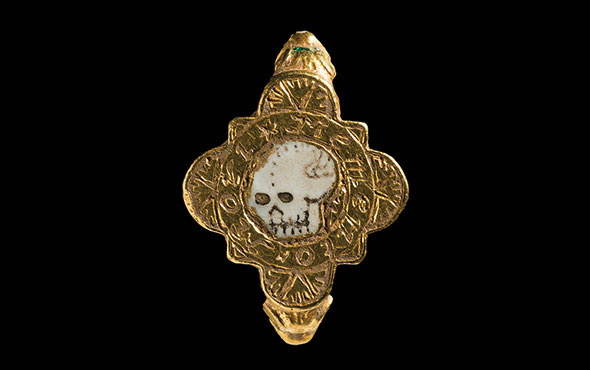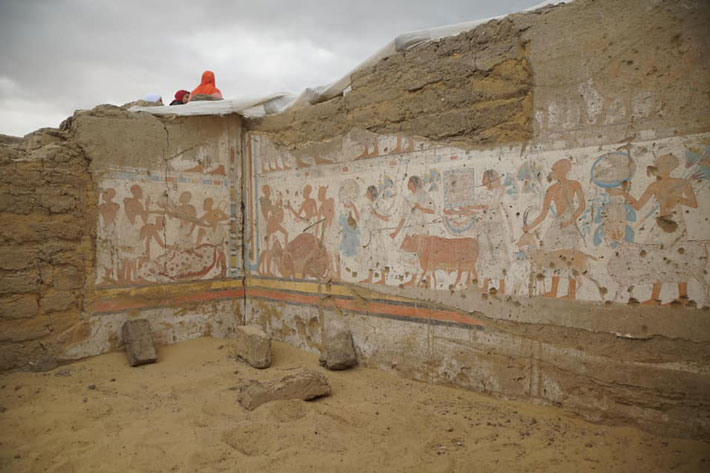
CAIRO, EGYPT—The entrance to the tomb of Ptah-M-Wia, head of the treasury during the reign of Ramesses II (1279–1213 B.C.), has been discovered in the Saqqara necropolis by researchers led by Ola El-Egazy of Cairo University, according to an Ahram Online report. Secretary-General of the Supreme Council of Antiquities Mostafa Waziri said this area of the necropolis holds the tombs of New Kingdom officials such as the military commander Haremhab; Ptah-Mas, the mayor of Memphis; the ambassador Basir; and Eurkhi, the supreme commander of the army. Treasurer Ptah-M-Wia also served as royal scribe, supervisor of cattle, and was responsible for sacrifices at the Ramesses II temple in Thebes, Waziri explained. This tomb is thought to have been constructed in a style similar to the others, with an elaborate entrance engraved with scenes of the deceased, a hall painted with scenes of offering processions, one or more courtyards, and a shrine with a pyramidion. Several columns, some of them still standing, were also found. To read about a pyramid constructed for one of Ramesses II's top ministers, go to "A Pyramid Fit for a Vizier."


